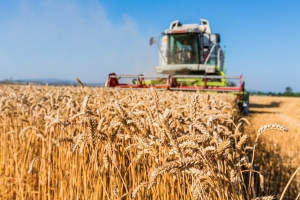


(Posted on 19/08/19)
The U.S. Department of Agriculture’s (USDA) new proposed rule for regulating plant-based agricultural biotechnology products, as drafted, is “fundamentally flawed” and could contribute to future trade disruptions, the National Grain and Feed Association (NGFA) and several other grain- and oilseed-based agribusiness associations said in a joint statement submitted on 6 August.
The NGFA, established in 1896, consists of more than 1,100 grain, feed, processing, exporting and other grain-related companies that operate more than 7,000 facilities and handle more than 70 percent of all U.S. grains and oilseeds. Its membership includes grain elevators; feed and feed ingredient manufacturers; biofuels companies; grain and oilseed processors and millers; exporters; livestock and poultry integrators; and associated firms that provide goods and services to the nation’s grain, feed and processing industry.
“Our industry, and our farmer-customers emphatically need to avoid the costly trade disruptions that have been associated periodically with transgenic biotechnology,” wrote the NGFA, Corn Refiners Association, National Oilseed Processors Association, North American Export Grain Association and North American Millers Association. “If the U.S. government’s regulatory oversight approach to genome editing and other plant breeding innovation is out of step with the domestic food industry or America’s significant export markets, it will have perilous repercussions for the grain and oilseed value chain, including U.S. farmers.”
The groups stressed that they strongly support the use of biotechnology and plant-breeding innovation, including genome editing, for its role in providing an abundant, affordable and environmentally sustainable food, feed and energy supply for U.S. and global consumers. But the groups also stressed that a “cornerstone of U.S. agriculture’s competitiveness” is its ability to efficiently and cost-effectively market America’s agricultural abundance. “It is through this dual lens – support for technological innovation while ensuring the continued efficient marketability of crops in which it is used” – that the five organizations said APHIS’s proposed rule needs to be viewed.
Under the proposed rule published on June 6, USDA’s Animal and Plant Health Inspection Service (APHIS) – which has authority to determine whether agricultural biotech traits pose a plant pest or noxious weed risk to the environment – would exempt most crops developed with gene-editing techniques from regulatory oversight. APHIS’s proposed rule states that such plants can be developed through traditional breeding techniques, making them unlikely to pose a greater plant pest risk than conventionally bred crops. The APHIS proposal also would empower crop developers to make a “self-determination” that their plant is exempt from APHIS regulatory oversight, without providing any notification to the agency. Under the proposed rule, technology providers would have the “option” to request written confirmation from APHIS that their self-determinations are valid.
The agribusiness organizations said such a broad self-determination approach “risks undermining consumer acceptance and international regulatory recognition of APHIS’s regulatory oversight.”
The organizations urged APHIS to amend its proposed rule to require all technology providers to notify the agency in advance before introducing gene-edited or other plant breeding innovation traits for commercialization – even those within APHIS’s expressly exempted categories – to provide needed transparency to the market and to consumers. Doing so would enable the agency to issue an official attestation that the trait does not pose a plant pest risk, “thereby providing an important tool to efficiently market U.S. agricultural products.”
The statement also reiterated NGFA’s long-held belief that obtaining international recognition or acceptance in significant U.S. export markets should be a precondition to avoid potential trade disruption before APHIS proceeds with a final rule.
The National Grain and Feed Association (NGFA) has applauded Senator Deb. Fischer’s (R-Neb.) reintroduction... Read more
Anglo American plc and Teck Resources Limited have received regulatory approval from the Government... Read more
The Rhodes Ridge Joint Venture has approved a $191 million (A$294 million) (Rio Tinto share $96 million... Read more
Trafigura Group Pte Ltd, a global leader in the commodities industry, has announced its financial results... Read more
Rio Tinto has successfully produced the first copper from the Johnson Camp mine in Arizona using its... Read more
The American Soybean Association’s World Initiative for Soy in Human Health programme and the... Read more
Karlka Nyiyaparli Aboriginal Corporation (KNAC) Registered Native Title Body Corporate and Rio Tinto... Read more
OCI Global, a leading global producer and distributor of nitrogen products has announced that it has... Read more
In December 2024, SSAB was granted a permit by the Land and Environment Court at Umeå District... Read more
The President of the Republic of Guinea has joined project partners WCS1, Baowu, Chinalco and Rio Tinto... Read more